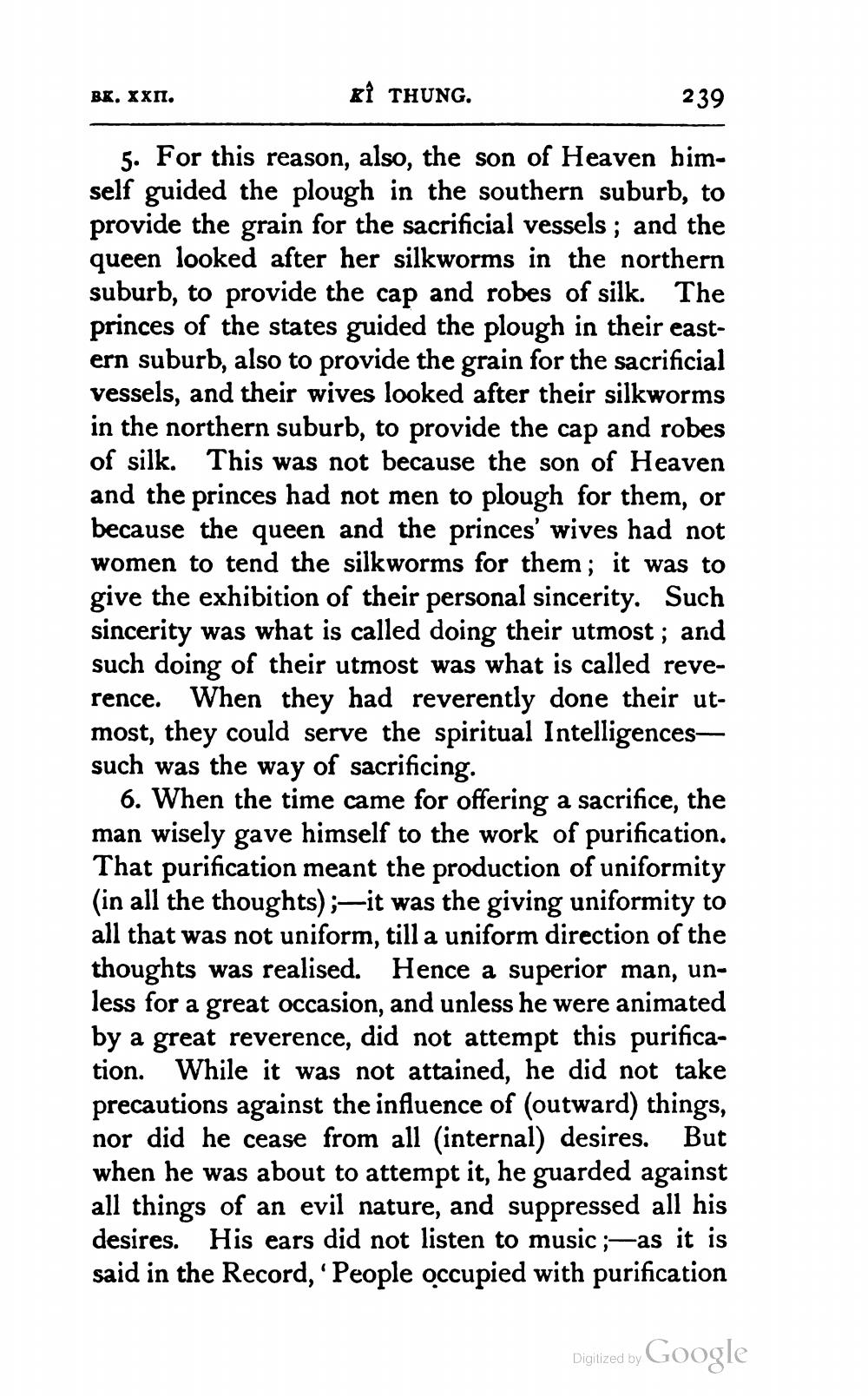________________
BK, XXII.
KĨ THUNG.
239
5. For this reason, also, the son of Heaven himself guided the plough in the southern suburb, to provide the grain for the sacrificial vessels; and the queen looked after her silkworms in the northern suburb, to provide the cap and robes of silk. The princes of the states guided the plough in their eastern suburb, also to provide the grain for the sacrificial vessels, and their wives looked after their silkworms in the northern suburb, to provide the cap and robes of silk. This was not because the son of Heaven and the princes had not men to plough for them, or because the queen and the princes' wives had not women to tend the silkworms for them; it was to give the exhibition of their personal sincerity. Such sincerity was what is called doing their utmost; and such doing of their utmost was what is called reverence. When they had reverently done their utmost, they could serve the spiritual Intelligences— such was the way of sacrificing.
6. When the time came for offering a sacrifice, the man wisely gave himself to the work of purification. That purification meant the production of uniformity (in all the thoughts);—it was the giving uniformity to all that was not uniform, till a uniform direction of the thoughts was realised. Hence a superior man, unless for a great occasion, and unless he were animated by a great reverence, did not attempt this purification. While it was not attained, he did not take precautions against the influence of (outward) things, nor did he cease from all (internal) desires. But when he was about to attempt it, he guarded against all things of an evil nature, and suppressed all his desires. His ears did not listen to music;—as it is said in the Record, 'People occupied with purification
Digitized by Google




